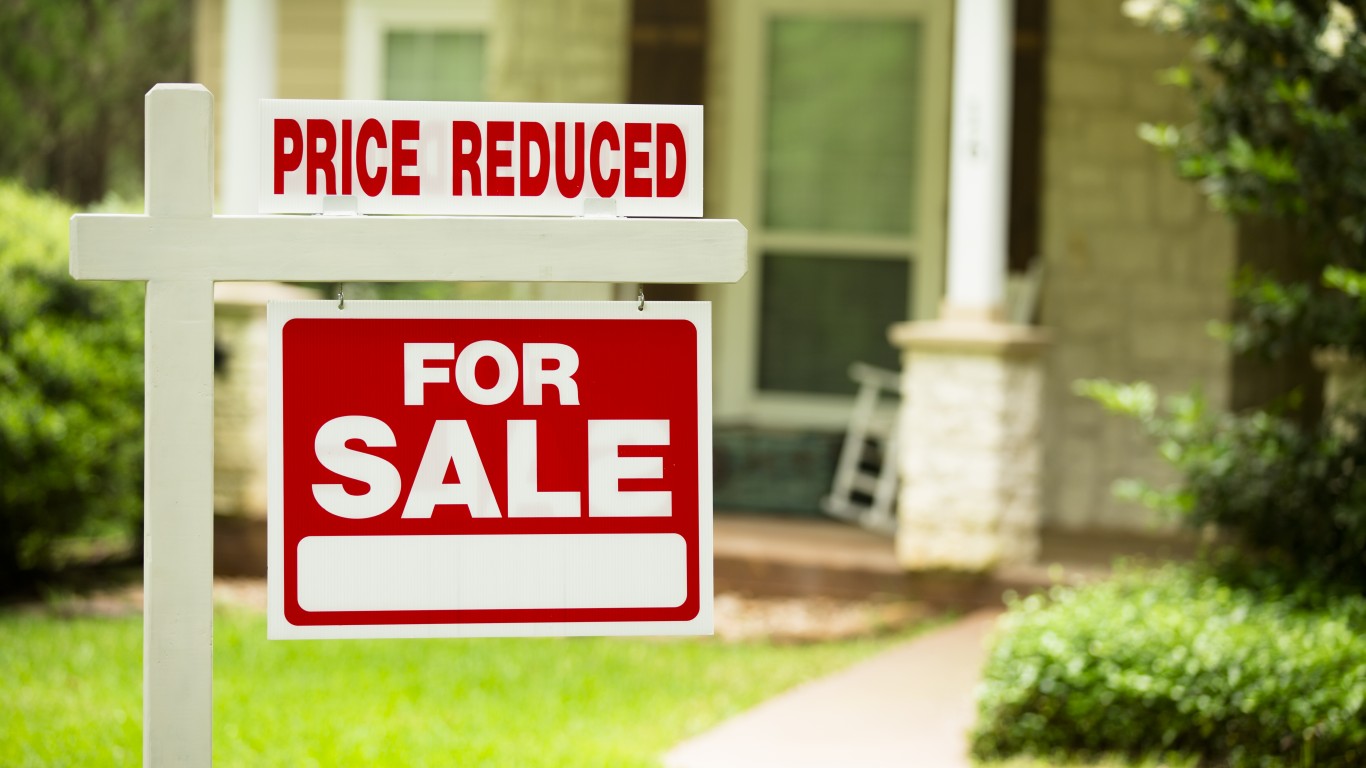
The volatility of the real estate market has been a hot topic for years. Whether it’s the rise and fall of interest rates or the supply and demand issue, investors and homebuyers alike constantly play a game of chess to find the right time to buy and sell.
What you may not know is that when it seems like supply is low and demand is high, the Multiple Listing Service (MLS) may not be the most accurate representation of what’s out there. The MLS is a private database created by real estate professionals to help their clients buy and sell, but investment properties are not always listed on the MLS.
Why We’re Covering This

The real estate industry will be valued at 6.13 trillion USD by 2030. Investing in real estate property, both residential and commercial, is a great way to build personal wealth while also gaining an understanding of how the industry affects the economy.
If you’re interested in expanding into real estate investing, we’ve got some important information about off-market properties.
What Are Off-Market Properties?

Off-market properties have not been listed or advertised through traditional methods. The broker didn’t submit it to the MLS for some reason, so investors hear about them through word of mouth or a network.
Properties are kept off-market for many reasons. The seller may want to maintain privacy, determine buyer interests, save on commissions or create a sense of urgency or exclusivity around a property to negotiate a higher price. Sellers also do this if they want to sell to a specific buying company or a private network of buyers.
Benefits of Buying Off-Market Properties

As with any type of investing, buying off-market has its pros and cons. Residential sellers rarely keep properties off-market, but it’s common for real estate investors to look for off-market properties, so consider the following benefits of buying off-market.
- Less Competition: Buyers have a competitive edge because properties are only available to a few buyers. While a property listed on the MLS may have hundreds of people interested, an off-market property is usually shared between two or three entities.
- Lower Prices: Less competition leads to lower prices. Investors can swoop in under the radar and get a property for a lower price before the public even sees the listing.
- Easy Negotiations: Negotiations tend to be more relaxed when it comes to off-market properties because there isn’t a huge sense of urgency.
- Relaxed Transaction Times: With less competition and fewer buyers, transactions tend to be more relaxed compared to those for public property. The only exception to this rule is short sales and foreclosures, which require a faster closing process.
- Additional Opportunities: Many sellers keep their property off-market because they’re in unfortunate situations, like financial issues or the need to quickly exit a property. Off-market listings offer a unique opportunity for both buyer and seller to benefit.
Drawbacks of Buying Off-Market Properties

While the benefits of buying off-market properties are tantalizing, it’s important to understand the downside before you get stars in your eyes and start making offers.
- Properties Hard to Find: Obviously, it’s harder to find off-market properties than it is to search the MLS for what you’re looking for. If you rely only on off-market properties for investments, your investments may stall.
- Availability: The National Association of Realtors (NAR) recently passed new guidelines to address the growing number of off-market properties sold. This may limit availability.
- Seller Inexperience: One exception to the NAR rules is For Sale by Owner properties. Homeowners trying to sell off-market may lack the experience of an agent working through the MLS.
5 Lesser Known Ways to Find Off-Market Properties for Sale

Despite potential drawbacks, off-market properties are a hot buy for investors. Because investors rely on word of mouth or networking to hear about these properties, it’s beneficial to identify some specific ways to find off-market properties.
1. Online Resources

This isn’t the most aggressive way to pursue properties but monitor additional real estate websites. While not all properties are listed on the MLS, other real estate sites allow sellers to list off-market properties for a limited time before they hit the MLS. Some examples of websites that allow this in different ways include Trulia, Zillow and Opendoor.
2. Networking

Networking is an ideal lead source in any industry, but particularly in this situation. Search for real estate events where you’re located, and reach out to local real estate agents to make connections. Building a network is a huge part of successfully investing in real estate.
Networking pays off through word-of-mouth advertising also. If you have additional professionals looking out for your interests, creating a mutually beneficial relationship is easy.
3. Public Records

While not all properties are listed on the MLS, you can find them through public records. Keep an eye out for short-sale properties or pre-foreclosures. Browse state and local government websites to find properties in your area.
4. Builders & Contractors

When a property is abandoned by a builder or investor, builders and contractors often know exactly where to find them. Get to know local professionals in your area with transparency, letting them know you’re looking for investment properties. Include builders and contractors in your networking efforts.
5. Real Estate Auctions

This is a commonly used tactic when it comes to buying off-market properties. Browse local auction sites to find real estate auctions and watch for foreclosure and real estate-owned properties. If you find a property being auctioned off, do your research before you show up to bid. Check out the neighborhood and have a thorough inspection done before purchasing.
What to Expect From the Buying Process

Once you’ve identified a property to buy, the next step is to purchase it, and you should know the ins and outs of purchasing off-market before you start.
With off-market properties, the agent often represents both the buyer and seller, so compensation issues can get murky. Buyers are at a disadvantage in this situation because the higher the price, the more commission the agent makes. Be aware of any conflicts of interest before buying.
Once you’ve found the property, the next steps go very much like the process of buying a property listed on the MLS. You’ll make an offer, get formal appraisals, get a purchase and sale form, find a mortgage broker and order an inspection for the property. If you choose to go through an agent, they handle many of the formal, housekeeping tasks.
Is Buying Off-Market a Good Investment?

Buying off-market comes with its own set of risks, but if you pay attention and negotiate fairly, it can pay off greatly. Don’t make rash decisions, watch resources closely for opportunities and consult an agent if this is your first purchase. Off-market properties are a huge part of a real estate investor’s portfolio, so they’re a great tool to have.
Are You Ahead, or Behind on Retirement? (sponsor)
If you’re one of the over 4 Million Americans set to retire this year, you may want to pay attention.
Finding a financial advisor who puts your interest first can be the difference between a rich retirement and barely getting by, and today it’s easier than ever. SmartAsset’s free tool matches you with up to three fiduciary financial advisors that serve your area in minutes. Each advisor has been carefully vetted, and must act in your best interests. Start your search now.
Don’t waste another minute; get started right here and help your retirement dreams become a retirement reality.
Thank you for reading! Have some feedback for us?
Contact the 24/7 Wall St. editorial team.





